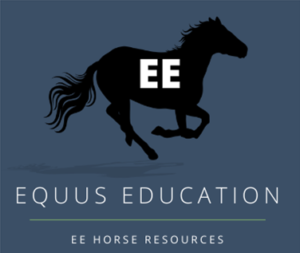Kirstie is back in the action with another wild stallion in Rodeo Rockey, the second in the Horses of Half Moon Ranch series.
Attending a rodeo with her mother, best friend Lisa and the guests of Half Moon Ranch, Kirstie disagrees with the treatment on the horses and one in particular but isn’t allowed to leave with her mother. The rodeo was a highlight for the guests and consequently to keep them happy, the Scott family stays put.
This results in a rash decision to purchase one of the horses – Rocky – to stop him from a potential future as a rodeo horse where he was being treated as a piece of meat rather than a living, breathing animal.
 The second book in this series looks into the environment in which animals are treated in such situations and the potential end result for them. For those who aren’t familiar with rodeos, it opens their eyes to what can happen to such animals that are used in events such as bronc riding.
The second book in this series looks into the environment in which animals are treated in such situations and the potential end result for them. For those who aren’t familiar with rodeos, it opens their eyes to what can happen to such animals that are used in events such as bronc riding.
Upon the purchase of the horse by her mother, Kirstie takes it upon herself to work with the stallion in a non threatening way. She slowly gains his trust and is able to introduce him to the items that he was resisting so strongly at the rodeo – a saddle and bridle.
The young girl’s approach to the horse and how she gains his trust is well written. It’s also lovely to read the encouragement to act in such a way towards horses to receive the best result in the long run.
The only query I had with the story was the stallion being put out with all the other horses at the ranch. I could understand if it was a stallion with only geldings or only mares but to have a mixed group, I believe a wild stallion would have conflicted with the other males in the group to show his dominance over them and own the mares.
The connection Rocky developed with Kirstie’s favourite gelding was well written though and showed how quickly a horse can develop such a strong bond with another horse.
The book built up to the point that I couldn’t foresee a happy ending with regard to the stallion and it was great to read of Kirstie’s completely selfless decision; her plan to do what was best for Rocky.
Another really entertaining read by Jenny Oldfield, Rodeo Rocky kept me interested until the end, finding it hard to put the book down.
Author: Jenny Oldfield
http://www.jennyoldfield.com/
Fiction
In my library? Absolutely! I look forward to purchasing the next few in the series that have been written by Jenny Oldfield and will be keeping an eye on others that come out. A great book for teens passionate about their horses.
“If you have it, it is for life. It is a disease for which there is no cure. You will go on riding even after they have to haul you on a comfortable wise old cob, with feet like inverted buckets and a back like a fireside chair… when I can’t ride anymore, I shall still keep horses as long as I can hobble about with a bucket and a wheelbarrow. When I can’t hobble, I shall roll my wheelchair out to the fence of the field where my horses graze, and watch them.” – Monica Dickens
Tag: horse story, equine book review, jenny oldfield, equine author, horse library, horse writing
 And the assignment? A Freestyle Dressage test; that is, a dressage test to music. We were given the paces that were allowed in the test, the amount of times we had to change direction and particulars like including a change across the long diagonal and a three loop serpentine, etc.
And the assignment? A Freestyle Dressage test; that is, a dressage test to music. We were given the paces that were allowed in the test, the amount of times we had to change direction and particulars like including a change across the long diagonal and a three loop serpentine, etc. The feel of the book is great, with a determined young female as the lead role and someone who’s obviously horse crazy and willing to do what it takes to make sure the animals they love are looked after.
The feel of the book is great, with a determined young female as the lead role and someone who’s obviously horse crazy and willing to do what it takes to make sure the animals they love are looked after. Finding her grandmother to be ‘too proper’, Lulu feels stifled and sets out exploring the town, stumbling across a pair of girls who have their own ponies and a track between their two houses that seems to be used only by the pair.
Finding her grandmother to be ‘too proper’, Lulu feels stifled and sets out exploring the town, stumbling across a pair of girls who have their own ponies and a track between their two houses that seems to be used only by the pair. OH&S has really stepped up in the racing industry in Victoria with Barrier Attendants now being highly visible on televised race days in their uniform including personal protective equipment.
OH&S has really stepped up in the racing industry in Victoria with Barrier Attendants now being highly visible on televised race days in their uniform including personal protective equipment.